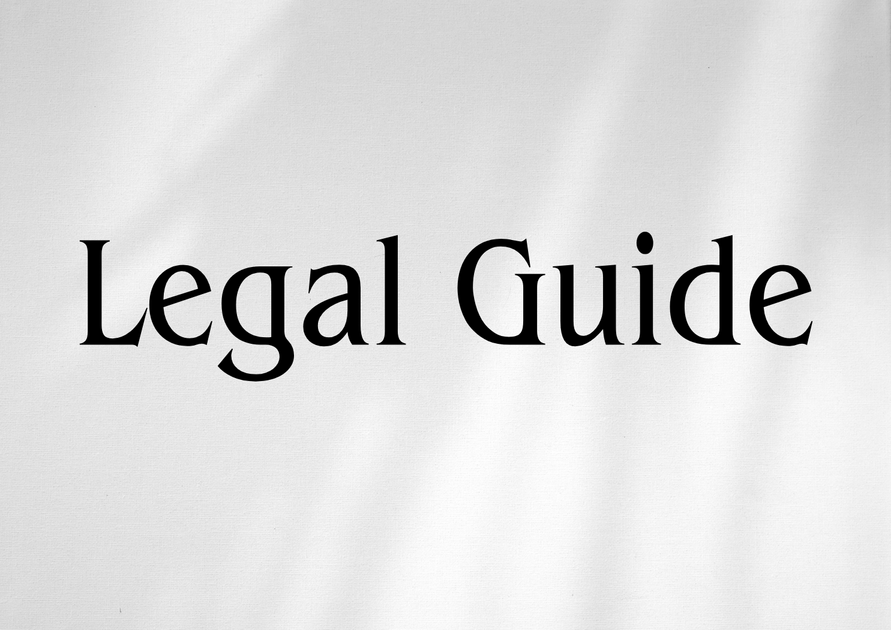Introduction: The Crucial Role of International Arbitration and Cross-Border Disputes in UAE Law 2025 Updates
In the rapidly evolving business landscape of the United Arab Emirates (UAE), international arbitration and the management of cross-border disputes have become pivotal matters for corporations, government entities, and legal practitioners. As the UAE continues to solidify its position as a global business hub, and with the 2025 updates to federal decree laws and relevant regulations, understanding the practical mechanisms, opportunities, and risks associated with international arbitration is more critical than ever.
Recent legislative changes—anchored in official sources from the UAE Ministry of Justice, Federal Legal Gazette, and key cabinet resolutions—reflect the nation’s commitment to aligning its dispute resolution frameworks with global best practices. For businesses, executives, HR managers, and legal counsel operating in or with the UAE, sound knowledge of these developments is essential for legal compliance, risk management, and commercial success.
This in-depth briefing analyses the provisions, practical implications, and compliance strategies for international arbitration and cross-border dispute resolution under UAE law as of 2025. It draws on authoritative sources and offers consultancy-grade insights that empower organizations to navigate the complexities, protect interests, and leverage opportunities in a dynamic regulatory environment.
Table of Contents
- Overview of UAE Arbitration Law 2025 Updates
- Key Features of International Arbitration in the UAE
- Recent Legislative Changes and Comparison
- Practical Insights Into Cross-Border Dispute Resolution
- Case Studies and Hypothetical Scenarios
- Risks of Non-Compliance and Effective Compliance Strategies
- Future Trends and Best Practices for Navigating UAE International Arbitration
- Conclusion: Preparing for a Resilient Dispute Resolution Framework
Overview of UAE Arbitration Law 2025 Updates
Legal Foundations and Recent Developments
International arbitration in the UAE is primarily governed by Federal Law No. 6 of 2018 (UAE Arbitration Law), which was enacted to bring the country’s framework into harmony with the UNCITRAL Model Law on International Commercial Arbitration. Subsequent updates, including Federal Decree-Law No. 15 of 2023 and Cabinet Resolution No. 120 of 2024, have introduced refinements to further enhance efficacy, enforceability, procedural clarity, and party autonomy in cross-border disputes.
Key legislative sources:
- Federal Law No. 6 of 2018 on Arbitration
- Federal Decree-Law No. 15 of 2023 Amending Provisions of Law No. 6 of 2018
- Cabinet Resolution No. 120 of 2024 Concerning Execution of Foreign Arbitral Awards
- UAE Ministry of Justice Official Circulars (2024–2025)
Scope and Applicability
The UAE Arbitration Law applies to both domestic and international commercial disputes, including those involving parties from free zones such as the DIFC and ADGM. Its jurisdiction extends to:
- Commercial contracts with arbitration clauses
- Cross-border business-to-business (B2B) and investment disputes
- Disputes involving state and quasi-state entities (with approval)
- Enforcement of arbitral awards, including foreign awards under the New York Convention
Significance for Stakeholders
The recent legislative updates significantly impact how multinationals, joint ventures, state-owned enterprises, and family businesses approach legal risk and dispute management. For companies operating across MENA, Asia, and Europe through the UAE, the amended frameworks bring both greater certainty and a more competitive choice between local courts and international arbitration centers.
Key Features of International Arbitration in the UAE
Party Autonomy and Procedural Flexibility
One of the defining characteristics of arbitration under UAE law is party autonomy—parties may agree on the rules of procedure, seat of arbitration, language, and appointment of arbitrators, subject only to mandatory UAE public policy. This flexibility makes the UAE attractive for regional and international contracts, especially in sectors such as construction, energy, hospitality, and technology.
Choice of Arbitration Institutions
The UAE hosts a growing number of leading arbitration institutions, including:
- Dubai International Arbitration Centre (DIAC)
- Abu Dhabi Global Market Arbitration Centre (ADGMAC)
- DIFC-LCIA Arbitration Centre (until transition in 2021)
- Other sector-focused bodies
Each institution maintains its own procedural rules, fee scales, and administrative processes, enabling parties to tailor their dispute resolution strategies to the specifics of their contract or business relationship.
Enforceability of Arbitration Agreements
Enforceability of arbitration agreements is reinforced by updated legislative provisions. Per the 2023 amendments, electronic records and digital signatures are now expressly recognized, reducing the threshold for proving the existence of arbitration agreements and streamlining proceedings, particularly for cross-border e-commerce and fintech contracts.
Arbitral Awards and Enforcement
The enforcement regime is one of the most notable areas of reform. Cabinet Resolution No. 120 of 2024 clarifies the process for the recognition and enforcement of foreign arbitral awards, implementing the New York Convention (ratified by the UAE in 2006) and ensuring international enforceability through UAE courts. The updated procedure offers:
- Expedited recognition petitions
- Restricted grounds for objection (public policy, lack of due process, incapacity, invalid arbitration agreement)
- Binding effect of arbitral awards, save for recognized exceptions
This has profound practical importance for cross-border transactions where prompt and effective enforcement can be a commercial game-changer.
Interim Measures and Court Assistance
Federal Law No. 6 of 2018 and its amendments recognize the authority of arbitral tribunals to grant interim measures (such as asset freezes, preservation orders, or document production). Moreover, UAE courts retain a supportive role in appointing arbitrators, compelling witness participation, and enforcing interim measures—and, under new regulations, can do so more quickly and efficiently than under previous practice.
Recent Legislative Changes and Comparison
Key Differences Between Old and New Arbitration Laws
The table below summarizes the most significant differences between pre-2023 and post-2023 arbitration legal frameworks, based on official legal sources:
| Aspect | Before 2023 Amendments | Post-2023 Updates (2023–2025) |
|---|---|---|
| Recognition of electronic agreements | Not expressly recognized; risk of challenge | Expressly recognized under Federal Decree-Law No. 15 of 2023 |
| Scope of interim measures | Limited; ambiguity in enforcement | Broadened with clear court support and interim orders |
| Enforcement of foreign awards | Unclear timelines; procedural inconsistencies | Expedited procedures and restricted grounds for objection (Cabinet Resolution No. 120 of 2024) |
| Public policy grounds | Potentially broad/uncertain | Clarified and narrowly construed in new guidelines |
| Arbitrator appointment by court | Cumbersome, time-consuming | Simplified and expedited by updated processes |
Impact of Legal Reforms
These changes demonstrate the UAE’s commitment to facilitating international business, strengthening legal certainty for foreign investors, and reducing friction in cross-border dispute resolution. However, organizations must actively adapt their internal risk and compliance protocols to align with new requirements, as the cost of error can be significant.
Practical Insights Into Cross-Border Dispute Resolution
Selecting an Effective Arbitration Clause
The wording and scope of an arbitration clause are critical. Modern best practice, particularly in light of UAE legal developments, involves:
- Stating the chosen arbitration institution and rules (e.g., “DIAC Rules”)
- Specifying the seat (legal place) of arbitration within the UAE (e.g., Dubai, Abu Dhabi, DIFC)
- Defining the number and method of appointment of arbitrators
- Clarifying language and applicable law
- Explicitly addressing whether interim relief and emergency arbitrators are allowed
Engaging specialist legal counsel to draft and review arbitration agreements—especially in multi-jurisdictional transactions—remains essential. Even minor omissions can compromise enforceability or significantly lengthen dispute resolution timelines.
Responding to Cross-Border Claims
When disputes arise, prompt and strategic action is key:
- Immediately review the precise arbitration clause and applicable law
- Engage UAE-qualified legal experts to assess venue appropriateness, regulatory overlays, and timing
- Secure requisite evidence early (this is especially important in technology, IP, and construction disputes)
- Consider interim relief, especially asset protection, where counterparty risk is high
Interaction With UAE Courts
UAE courts continue to support, rather than compete with, arbitration processes. The updated framework gives local courts the role of:
- Appointing arbitrators where parties fail to agree
- Assisting in the enforcement of interim or final arbitral awards
- Staying court proceedings when a valid arbitration agreement applies
However, procedural errors or misinterpretation could result in delays or loss of rights. Legal representation with a deep understanding of UAE federal procedure, Ministry of Justice guidelines, and relevant court practices is highly recommended at every stage.
Enforcing Foreign Arbitral Awards Under UAE Law
With the strengthened provisions of Cabinet Resolution No. 120 of 2024, the UAE remains fully committed to the 1958 New York Convention framework. Practically, this means:
- Foreign arbitral awards must be recognized and enforced by UAE courts unless a narrow ground for refusal applies
- Recognition is typically completed within 45–60 days, subject to straightforward application requirements
- Enforcement may be refused only for lack of due process, invalid arbitration agreement, incapacity, or manifest public policy breach
Case Studies and Hypothetical Scenarios
Case Study 1: Multinational Construction Dispute
Scenario: A European engineering firm and a UAE-based developer enter into a contract governed by UAE law, with a DIAC arbitration clause. A dispute over project delays and defects escalates.
Legal Solution: On the developer’s refusal to pay, the engineering firm files for DIAC arbitration. The arbitration panel is quickly formed as per modern rules, with the seat nominated as Dubai. The claimant obtains a court-supported interim order freezing certain local assets to prevent dissipation. The final award, granted in the claimant’s favour, is recognized and enforced expeditiously under Cabinet Resolution No. 120 of 2024.
Consultancy Insight: The updated legislative framework streamlined the process and reduced the risk of strategic delay, showcasing the advantages of accurate contract drafting and expert legal support.
Case Study 2: Technology Joint Venture With Cross-Border IP Rights
Scenario: An Abu Dhabi-based startup and a Singaporean tech company create a joint venture with a contract stipulating ADGMAC arbitration. Midway through performance, allegations of IP theft and breach of confidentiality arise.
Legal Solution: Interim relief is urgently required. Under Federal Law No. 6 of 2018 as amended, the startup successfully applies for ex parte interim orders from the tribunal, promptly enforced by Abu Dhabi civil court with minimal delay.
Consultancy Insight: The robust, mutually supporting relationship between arbitral tribunals and UAE courts—deepened by 2023–25 reforms—facilitates fast, effective asset protection in highly competitive sectors.
Compliance Checklist Suggestion
Visual recommendation: Consider a checklist graphic of essential compliance steps for international arbitration under the UAE 2025 legal framework.
- Draft arbitration clauses with explicit reference to institution, rules, and seat
- Review and update existing contracts for electronic agreement compliance
- Establish internal procedures for securing documentary and digital evidence
- Conduct periodic legal audits to align with new procedural and enforcement rules
- Train executive and HR teams on dispute escalation protocols
Risks of Non-Compliance and Effective Compliance Strategies
Key Risks for Organizations
The cost of failing to comply with updated arbitration and cross-border dispute requirements can be immense:
- Inability to enforce arbitral awards in the UAE or abroad
- Delay or suspension of dispute resolution proceedings
- Potential for parallel litigation and jurisdictional conflicts
- Increased exposure to damages, costs, and reputational harm
- Regulatory penalties or loss of business licenses in serious cases
Effective Compliance Strategies
- Contract Risk Reviews: Regularly audit all high-value and cross-border contracts to ensure up-to-date arbitration clauses and compliance with the latest electronic execution and enforcement rules.
- Dispute Readiness Protocols: Develop and maintain a playbook, including evidence preservation, internal notification, and external counsel engagement procedures.
- Stakeholder Training: Conduct periodic training workshops for legal and executive staff on updated UAE arbitration procedures and cross-border risk management.
- Legal Technology Integration: Invest in secure digital contract management, signature solutions, and case tracking systems aligned with the requirements of the 2025 legal environment.
- Engagement of Qualified Legal Advisors: Retain experienced, UAE-qualified arbitration counsel to manage every stage of the dispute lifecycle, especially when operating across multiple jurisdictions.
Penalty Comparison Chart Suggestion
Visual recommendation: Penalty and risk exposure comparison table between compliant and non-compliant organizations for enforcement of arbitral awards post-2023 reforms.
| Compliance Status | Time to Enforcement | Administrative Burden | Risk of Refusal/Delay |
|---|---|---|---|
| Fully Compliant | 45–60 days | Low | Minimal |
| Non-Compliant | Up to 18 months | High | Significant (risk of outright refusal) |
Future Trends and Best Practices for Navigating UAE International Arbitration
Emerging Trends in UAE Dispute Resolution
- Increasing use of online dispute resolution (ODR) platforms, recognized by Cabinet resolutions and Ministry of Justice circulars
- Rise in multi-tiered dispute resolution clauses incorporating mediation-arbitration hybrids
- Greater cross-pollination between UAE onshore courts and free zone arbitral institutions
- Accelerated enforcement of foreign awards, consolidating the UAE’s role as a regional arbitration hub
- Integration of artificial intelligence and LegalTech in case management and evidence review
Best Practices for Businesses and Practitioners
- Review Standard Contracts: Ensure all templates reflect 2025 UAE arbitration law updates and are suitable for cross-border use.
- Monitor Legal Updates: Subscribe to the Federal Legal Gazette, Ministry of Justice alerts, and network with local counsel to stay abreast of new regulations or court interpretations.
- Pre-arbitral Risk Assessments: Before entering high-value or complex cross-border deals, conduct scenario planning and arbitration readiness assessments.
- Confidentiality Protocols: Given increased electronic filings, maintain robust digital security for arbitration communications and submissions.
- Engage Cross-Border Experts: Collaborate with advisers who have transnational expertise within and outside the UAE legal system to navigate procedural nuances.
Conclusion: Preparing for a Resilient Dispute Resolution Framework
The UAE’s comprehensive updates to arbitration and cross-border dispute frameworks set a new standard for efficiency, transparency, and international alignment. For organizations and practitioners, these reforms offer unprecedented opportunities for reliable, rapid, and enforceable dispute resolution—but they also increase responsibilities in contract management, compliance, and dispute readiness.
The best outcomes will be realized by forward-thinking businesses that proactively update their dispute resolution protocols, invest in legal awareness, and partner with UAE-qualified experts. As the region’s legal landscape continues to evolve, early adaptation and ongoing vigilance remain the keys to protecting commercial interests and maximizing certainty in international business.
To discuss how your organization can enhance dispute readiness under the UAE’s 2025 arbitration law updates, or for tailored advice, consult with our experienced legal team.




